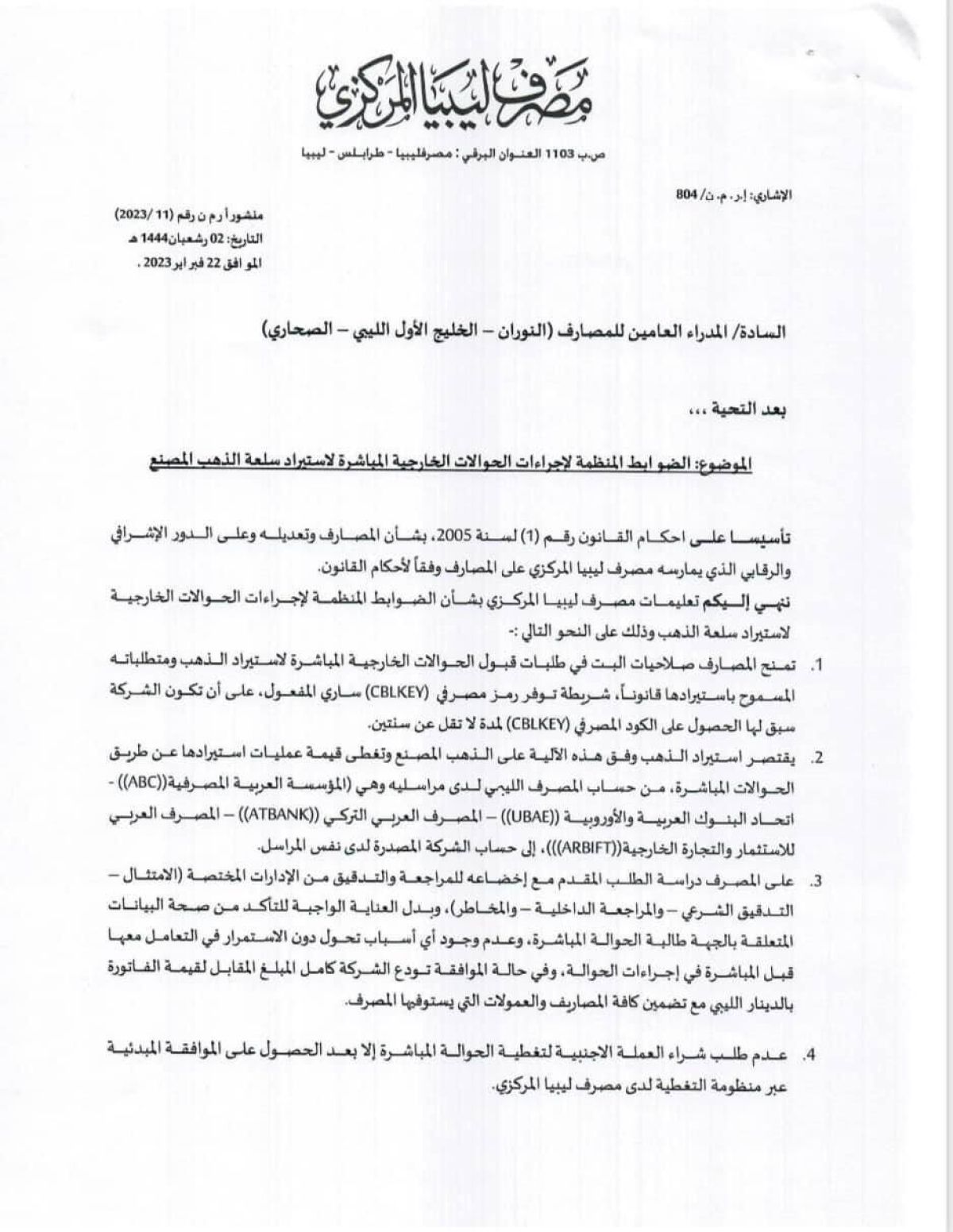Central Bank issues instructions to commercial banks regarding regulations for external transfers for importing gold commodity

The Central Bank of Libya has issued instructions regarding regulations for external transfers for importing gold commodity to the banks, including Nuran Bank, First Gulf Libyan Bank, and Sahara Bank, granting them the authority to accept direct external transfer requests for importing gold and the legally permitted requirements, provided a valid bank code “CBLKEY”.
The Central Bank’s instructions specify that the import of gold is restricted to manufactured gold, covering the value of its import operations through direct transfers from the Libyan bank’s account with its correspondents, the Arab Banking Corporation “ABC,” the Arab-European Union of Banks “UBAE,” the Arab Turkish Bank “ATBANK,” and the Arab Investment and Foreign Trade Bank “ARBIFT” to the exporter’s account with the same correspondent.
The Central Bank emphasized, in its instructions to the mentioned banks, that the bank must study the submitted request and subject it to review and verification by the competent administration. Also, not to request the purchase of foreign currency to cover the direct transfer unless obtaining preliminary approval through the coverage system at the Central Bank of Libya.
Among the Central Bank’s regulations and instructions to the banks, the maximum value of direct transfer for importing manufactured gold must not exceed $2 million. The preliminary invoice must include all data related to the description, weight, quantity, and price.
The invoice’s value must be entirely covered by the available balance in the account when requesting approval for the external transfer, with the company depositing an additional amount equal to 7% of the total value of the invoice with the bank to ensure the company’s commitment to providing all required documents to settle the shipment.
Banks must exercise due diligence in matching the invoice data with the inspection certificate and export declaration from the exporting country, with legal responsibility falling on the violators.



